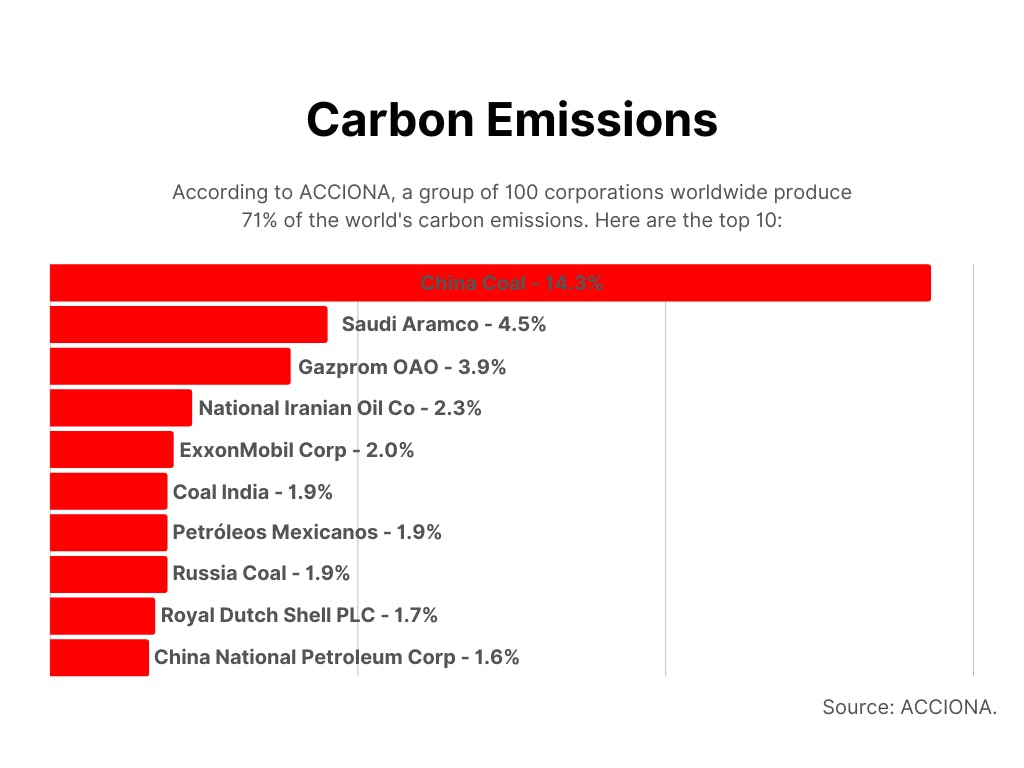This article has a companion piece which can be read here.
Let me introduce you to a website where you can calculate your carbon footprint! Once you input every little aspect of your day into this calculator, you will be given an estimate of the amount of emissions you are responsible for on a daily basis.
Shame on you — you should feel terrible about how much you are contributing to global warming, right?
Websites such as this can be found all over the internet, published by many different sources. These sites ask the user to input all potential areas in which they have determined any normal person may be responsible for carbon emissions.
Although these calculators seem to be an innocent way to cut down on your emissions, the story behind them is much more complex.
Carbon footprint calculators appeared as early as 2004, popularized by a surprising industry — big oil itself, specifically the British Petroleum (BP) company. Advertised as a way to show that these companies cared about the environment, it was in fact a subtle way to push the blame for the climate crisis off of themselves and onto the average citizen.
Not only can these be misleading in the actual numbers the websites calculate for individuals, but the sites are also misleading as to what the real problem is. These calculators place normal people in the hot seat, claiming them to be the reason behind the planet’s unprecedented warming, while the oil companies that create the actual problems hide behind a facade of false sustainability.
I was reminded of this intrinsic difference between the wastes of individual people and large corporations this past week due to the Student Sustainability Council’s fall 2022 Sustainability Week. It got me thinking about how much push there has been in the last several years to educate people on how to live more sustainably.
Now, don’t get me wrong, I support this education and this promotion of a sustainable way of living, 100%. I do my best every day to be the least wasteful as possible in all aspects.
However, I believe that there needs to be a change in the motivation behind this lifestyle.
Your decision to change to a greener lifestyle should not come from a place of guilt, but rather a place of willingness. You should want to live more sustainably, not because you feel you will be to blame for a future climate disaster. Do it because you love nature, because it can be cheaper, or just because it makes you feel better about how you interact with the environment.
Large groups of people coming together to change their ways can lead to tremendous changes, no doubt, but we cannot take all of the responsibility onto ourselves to fix the planet. It is this self-criticism that allows these industries and companies to continue their harmful practices.
Enjoy what you're reading?
Signup for our newsletter
The term for merely putting on a show of environmental consciousness has been labeled “greenwashing.” This is an accurate term for companies such as BP, because while many fossil fuel companies try to pacify ever-growing public concern over dangerous carbon emissions, BP is still funneling hundreds of millions of dollars into political lobbying just in the U.S. alone.
What this does is allow the large companies, like BP, to fly under the radar. Lest we forget, only 100 companies are responsible for 71% of global emissions. That is where the real challenge in tackling climate change lies.

It is when we force these companies to own up to their impact and change their business practices that we will see the biggest results. This can be done by electing candidates who do not accept money from fossil fuel lobbyists, voting with your dollar – which is the practice of being more conscious of what and from whom you purchase – and holding these companies accountable for their actions.
Lots of people have a lot of anxiety about the future of our global environment and the consequences that may arise. Some reports say we are past the point of no return, some say we still have a few years and some still say that we will be fine in the end.
There is so much data and so many different proposed outcomes that it can be quite overwhelming to digest it all. The acknowledgment that humans are hurting the environment and the willingness to try to fix it is good, but becoming too wrapped up in fear and guilt is not.
As university students, we will all soon be entering the real world, with much more freedom and many more choices in how we live our lives. As we enter this stage of our lives, let us be conscious of our waste and care for our planet.
But do not forget who the real problem is, or the real way to create change.




